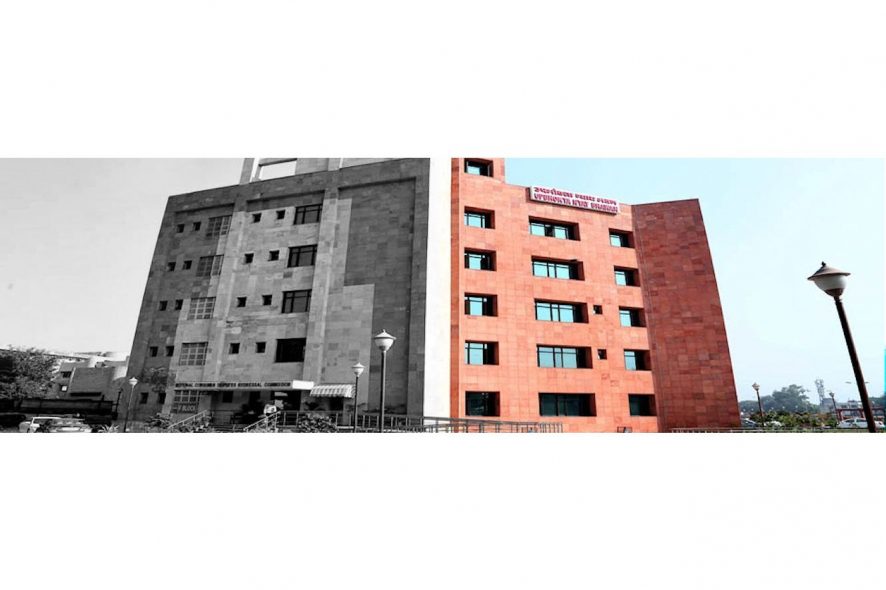National Consumer Disputes Redressal Commission (NCDRC): Expressing its opinion of ‘Condonation of Delay’, Coram of C. Viswanath (Presiding Member) and Justice Ram Surat Ram Maurya (Member) dismissed the present appeal calling it an abuse of process of law.
Instant appeal was filed against the decision of the State Consumer Disputes Redressal Commission. Further, along with the appeal, an application for condonation of delay of 13 years was also filed by the appellant.
Section 14 of the Limitation Act
“14 Exclusion of time of proceeding bona fide in court without jurisdiction. —
(1) In computing the period of limitation for any suit the time during which the plaintiff has been prosecuting with due diligence another civil proceeding, whether in a court of first instance or of appeal or revision, against the defendant shall be excluded, where the proceeding relates to the same matter in issue and is prosecuted in good faith in a court which, from defect of jurisdiction or other cause of a like nature, is unable to entertain it.
(2) In computing the period of limitation for any application, the time during which the applicant has been prosecuting with due diligence another civil proceeding, whether in a court of first instance or of appeal or revision, against the same party for the same relief shall be excluded, where such proceeding is prosecuted in good faith in a court which, from defect of jurisdiction or other cause of a like nature, is unable to entertain it.
(3) Notwithstanding anything contained in rule 2 of Order XXIII of the Code of Civil Procedure, 1908 (5 of 1908), the provisions of sub-section (1) shall apply in relation to a fresh suit instituted on permission granted by the court under rule 1 of that Order where such permission is granted on the ground that the first suit must fail by reason of a defect in the jurisdiction of the court or other cause of a like nature. Explanation.— For the purposes of this section,—
(a) in excluding the time during which a former civil proceeding was pending, the day on which that proceeding was instituted and the day on which it ended shall both be counted;
(b) a plaintiff or an applicant resisting an appeal shall be deemed to be prosecuting a proceeding;
(c) misjoinder of parties or of causes of action shall be deemed to be a cause of a like nature with defect of jurisdiction.”
It was noted that the Opening sentence of Section 14 of the Limitation Act says “exclusion of time of proceeding bona fide in court without jurisdiction.”
In the present matter, Opposite Party (OP) tried to take undue benefit of Section 14 of the Act and not act bonafidely. Appellant had malafide intention to evade implementation of the order passed by the State Commission.
Further, Supreme Court has held that a party who has not acted diligently or remains inactive is not entitled to condonation of delay
Elaborating further on condonation of delay, Court observed that Condonation of delay is not a matter of right and the applicant has to set out the case showing sufficient reasons which prevented them to come to the Court/Commission within the stipulated period of limitation.
Supreme Court in the matter of Ram Lal v. Rewa Coalfields Ltd., AIR 1962 Supreme Court 361 has held as under:
“It is, however, necessary to emphasize that even after sufficient cause has been shown a party is not entitled to the condonation of delay in question as a matter of right. The proof of a sufficient cause is a condition precedent for the exercise of the discretionary jurisdiction vested in the Court by Section 5. If sufficient cause is not proved nothing further has to be done; the application for condoning delay has to be dismissed on that ground alone. If sufficient cause is shown then the Court has to enquire whether in its discretion it should condone the delay. This aspect of the matter naturally introduces the consideration of all relevant facts and it is at this stage that diligence of the party or its bona fides may fall for consideration; but the scope of the enquiry while exercising the discretionary power after sufficient cause is shown would naturally be limited only to such facts as the Court may regard as relevant.”
Burden of showing delay is on whom?
Coram stated that the burden is on the applicant to show that there was sufficient cause for the delay.
In the Supreme Court decision of Anshul Aggarwal v. NOIDA, (2011) 14 SCC 578, Supreme Court warned the Commissions to keep in mind while dealing with such applications the special nature of the Consumer Protection Act.
In a recent judgment the Supreme Court observed that condonation of delay would depend on the background of each and every case, and routine explanation would not be enough.
Hence, in the present matter, appellant’s submission that he got the knowledge of the impugned order on 31-01-2017 was nothing but an attempt to mislead the Court.
Therefore, the present first appeal was just an abuse of process of law. [Suranjan Biswas v. Ashoke Kumar Nath, FA No. 1005 of 2019, decided on 15-11-2021]
Advocates before the Commission:
For the Appellant: Ramdulal Manna, Advocate







